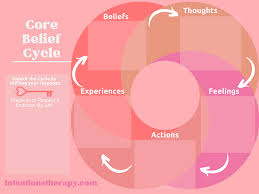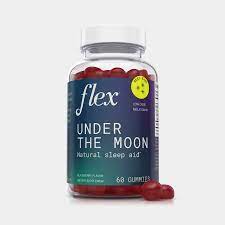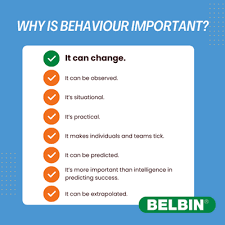Anxiety is a common mental health condition that affects millions of people worldwide. It is characterized by feelings of worry, fear, and apprehension that can be overwhelming and interfere with daily life. Anxiety can manifest in various ways, including panic attacks, social anxiety, generalized anxiety disorder (GAD), and specific phobias.
While some level of anxiety is normal and even helpful in certain situations, such as when we need to make a quick decision or respond to a threat, excessive or chronic anxiety can be debilitating. It can lead to physical symptoms such as rapid heartbeat, sweating, trembling, and difficulty breathing.
There are many factors that can contribute to the development of anxiety, including genetics, brain chemistry imbalances, environmental factors such as stress or trauma, and personality traits such as perfectionism or low self-esteem. It’s essential to recognize the signs of anxiety early on and seek professional help if necessary.
Treatment for anxiety typically involves a combination of medication and therapy. Antidepressants or anti-anxiety medications can help manage symptoms in the short-term but should not be relied on as a long-term solution. Therapy can help individuals learn coping skills and strategies to manage their anxiety effectively.
In addition to professional treatment options, there are also lifestyle changes that individuals with anxiety can make to improve their overall well-being. Regular exercise has been shown to reduce symptoms of anxiety by releasing endorphins that promote feelings of well-being. A healthy diet rich in whole foods like fruits and vegetables can also improve mood and reduce inflammation in the body.
It’s important to remember that everyone experiences anxiety differently and that there is no one-size-fits-all solution. Seeking support from loved ones or joining a support group for individuals with anxiety can also be helpful in managing symptoms.
In conclusion, while living with anxiety can be challenging at times, it’s essential to know that there are effective treatments available. By seeking professional help and making lifestyle changes like exercise and a healthy diet, individuals with anxiety can learn to manage their symptoms and lead fulfilling lives.
5 Common Questions About Anxiety Answered
- What causes anxiety?
- How can I manage my anxiety?
- What are the symptoms of anxiety?
- How can I tell if my anxiety is normal or a disorder?
- What treatments are available for anxiety disorders?
What causes anxiety?
Anxiety can be caused by a variety of factors, including biological, environmental, and psychological factors. Here are some of the most common causes of anxiety:
- Genetics: Anxiety disorders can run in families, suggesting that there may be a genetic component to the disorder.
- Brain chemistry: Imbalances in certain chemicals in the brain, such as serotonin and dopamine, can contribute to the development of anxiety.
- Environmental factors: Traumatic events such as abuse, neglect, or violence can trigger anxiety. Chronic stress at work or home can also contribute to feelings of anxiety.
- Personality traits: Certain personality traits such as perfectionism or low self-esteem are associated with an increased risk of developing anxiety.
- Medical conditions: Certain medical conditions such as thyroid disorders or heart disease can cause symptoms of anxiety.
- Substance use: Alcohol and drug use can cause or worsen symptoms of anxiety.
It’s important to remember that everyone experiences anxiety differently and that there is no one-size-fits-all solution. If you are experiencing symptoms of anxiety, it’s essential to speak with a healthcare professional who can help determine the underlying cause and develop an appropriate treatment plan.
How can I manage my anxiety?
Managing anxiety can be challenging, but there are several strategies that you can use to help reduce your symptoms and improve your overall well-being. Here are some tips:
- Practice relaxation techniques: Deep breathing, meditation, and progressive muscle relaxation can all help reduce feelings of anxiety and promote relaxation.
- Exercise regularly: Regular exercise has been shown to reduce symptoms of anxiety by releasing endorphins that promote feelings of well-being.
- Get enough sleep: Lack of sleep can worsen symptoms of anxiety, so it’s essential to prioritize getting enough restful sleep each night.
- Limit caffeine and alcohol intake: Caffeine and alcohol can both exacerbate symptoms of anxiety, so it’s best to limit or avoid them altogether.
- Practice self-care: Engage in activities that bring you joy and make you feel good, such as taking a relaxing bath, reading a book, or spending time with loved ones.
- Seek professional help: If your anxiety is interfering with your daily life and impacting your ability to function, it may be time to seek professional help from a therapist or mental health provider.
Remember that managing anxiety is an ongoing process that requires patience and perseverance. Be kind to yourself and celebrate small victories along the way. With time and effort, you can learn to manage your anxiety effectively and live a fulfilling life.
What are the symptoms of anxiety?
The symptoms of anxiety can vary from person to person, but some common symptoms include:
- Excessive worry or fear: Feeling anxious or worried about everyday situations or events, even when there is no real threat.
- Restlessness: Feeling restless, on edge, or unable to relax.
- Fatigue: Feeling tired or fatigued despite getting enough sleep.
- Difficulty concentrating: Finding it hard to concentrate or focus on tasks due to racing thoughts or worries.
- Irritability: Feeling irritable or easily annoyed by small things.
- Muscle tension: Experiencing muscle tension, twitches, or tremors.
- Sleep disturbances: Having trouble falling asleep, staying asleep, or experiencing nightmares.
- Panic attacks: Sudden episodes of intense fear accompanied by physical symptoms such as sweating, rapid heartbeat, and difficulty breathing.
- Avoidance behavior: Avoiding situations that may trigger anxiety such as social situations or places associated with past traumatic events.
It’s important to note that everyone experiences anxiety differently and that not everyone will experience all of these symptoms. If you are experiencing any of these symptoms and they are interfering with your daily life, it’s essential to seek professional help from a mental health provider who can provide an accurate diagnosis and develop an appropriate treatment plan for you.
How can I tell if my anxiety is normal or a disorder?
It can be challenging to determine whether your anxiety is normal or a disorder. Anxiety is a common experience that everyone will face at some point in their lives, and it can be helpful in certain situations, such as when we need to make quick decisions or respond to a threat.
However, if your anxiety is persistent and interferes with your daily life, it may be a sign of an anxiety disorder. Here are some signs that your anxiety may be a disorder:
- Excessive worry: If you find yourself worrying excessively about everyday activities or events, you may have an anxiety disorder.
- Physical symptoms: Anxiety can cause physical symptoms such as rapid heartbeat, sweating, trembling, and difficulty breathing. If these symptoms occur frequently and interfere with your daily life, it may be a sign of an anxiety disorder.
- Avoidance behavior: If you find yourself avoiding certain situations or activities due to fear or anxiety, it may be a sign of an anxiety disorder.
- Intrusive thoughts: If you experience intrusive thoughts that are difficult to control and cause anxiety, it may be a sign of an anxiety disorder.
- Impact on daily life: If your anxiety interferes with your ability to work or socialize with others, it may be a sign of an anxiety disorder.
If you’re experiencing any of these symptoms regularly and they are interfering with your daily life, it’s essential to seek professional help from a mental health provider such as a therapist or psychiatrist. They can help diagnose whether you have an anxiety disorder and provide treatment options that can help manage your symptoms effectively.
What treatments are available for anxiety disorders?
There are several treatments available for anxiety disorders, including:
- Therapy: Cognitive-behavioral therapy (CBT) is a type of therapy that has been shown to be very effective in treating anxiety disorders. CBT helps individuals identify negative thought patterns and replace them with more positive and realistic ones.
- Medications: Antidepressants and anti-anxiety medications can be prescribed by a doctor to help manage symptoms of anxiety disorders. These medications work by regulating brain chemistry and can be helpful in reducing the intensity of symptoms.
- Lifestyle changes: Regular exercise, healthy eating habits, and stress management techniques like meditation or yoga can also help manage symptoms of anxiety disorders. Avoiding caffeine, alcohol, and nicotine can also help reduce feelings of anxiety.
- Alternative therapies: Some individuals find alternative therapies like acupuncture or massage helpful in managing their anxiety symptoms. However, it’s important to speak with a healthcare professional before trying any alternative therapies.
- Self-help strategies: There are several self-help strategies that individuals with anxiety disorders can use to manage their symptoms, such as deep breathing exercises, progressive muscle relaxation, and visualization techniques.
It’s important to note that treatment for anxiety disorders is not one-size-fits-all and may involve a combination of different approaches depending on the individual’s needs. It’s essential to speak with a healthcare professional to determine the best course of treatment for each individual case.




